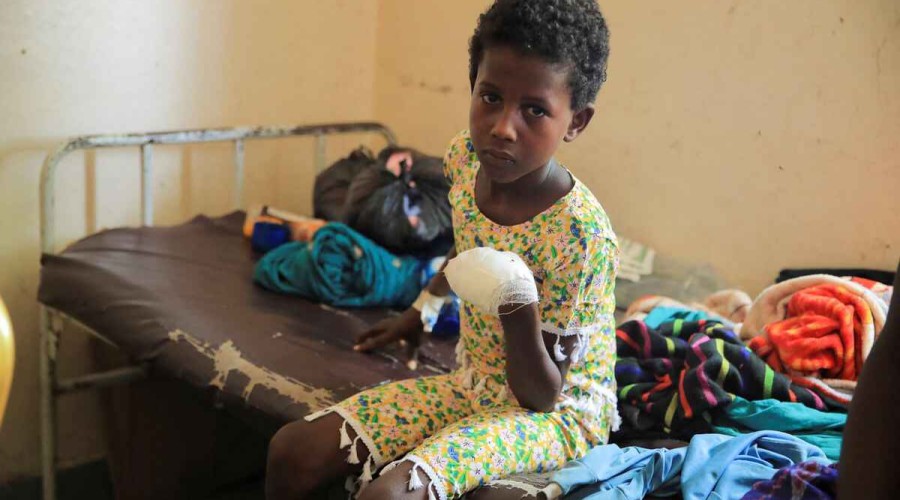Children are being killed and maimed by discarded explosives in Ethiopia
Ethiopian Health Minister Lia Tadesse told that she was not aware of the incidents of children injured by unexploded ordnance or mines in Afar or the other regions

Fifteen-year-old Eysa Mohammed was collecting water near her home in northern Ethiopia's Afar region when an explosion underfoot tore shrapnel into her leg, making her one of a growing number of children maimed by weapons discarded in the country's civil war, Qazet.az reports.
"So much blood was spilling from my right foot," Eysa told Reuters in her family hut in the town of Kasagita. Doctors removed two large pieces of metal from her leg in February but she can no longer walk.
Fighting in northern Ethiopia, which began in November 2020 in the Tigray region and spilled over into Afar and the Amhara region last year, has eased since the end of March. The federal government declared a unilateral ceasefire last month in a war that has killed thousands of people. On April 25, Tigrayan forces announced they would withdraw from Afar.
But discarded explosives have maimed or killed scores of children in Afar even after open combat near Kasagita abated in December, three regional health officials told Reuters.
Adults have also been wounded, but the officials say there are more child victims because they are often not aware of the dangers and handle the strange looking items.
The health officials did not provide an exact total of injuries by unexploded ordnance in Afar. Around a fifth of its health facilities are not functional due to the fighting, according to the U.N. Office for the Coordination of Humanitarian Affairs.
However, between December and late February, the Dubti Referral Hospital, Afar's largest, received about 25 cases per week of injured children from unexploded ordnance or landmines, said Tamer Ibrahim, head nurse for the surgical unit. During a visit in late February, Reuters saw medical records for 22 of the cases, with some attributing injuries to a "bomb" or "explosive," based on patient testimonies.
Six children with amputated limbs lay on dirty beds in the paediatric unit.
Injuries from unexploded ordinance are still happening - a 20-year-old man lost his hand on April 18, Dr. Abdollah Dooran, who runs Kasagita's health centre, told Reuters by telephone. He had seen around 50 such injuries since the fighting died down, he said.
Residents said the danger makes them fearful of fetching water and resuming farming activities key to the recovery of northern Ethiopia, where the war has left hundreds of thousands in famine conditions and displaced around two million people, U.N. figures show.
"Unexploded ordnance and abandoned ammunition will continue to obstruct humanitarian activities, hamper agriculture and construction efforts," and prevent safe resettlement, said Mark Hiznay, senior arms researcher at New York-based Human Rights Watch.
